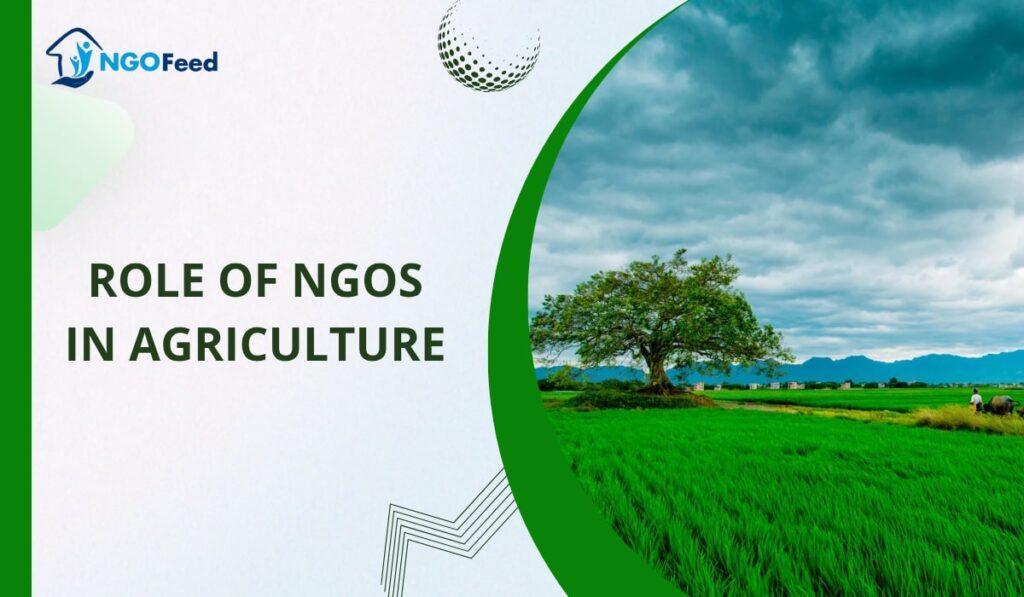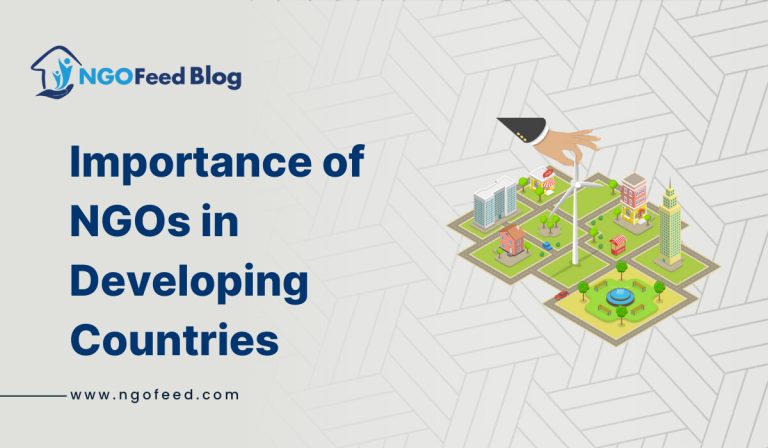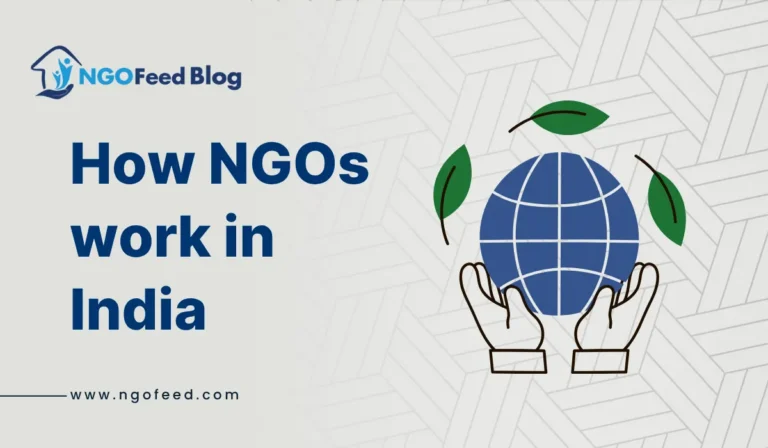Role of NGOs in Agriculture: This article explores the contributions of Non-Governmental Organizations (NGOs) to the sector as change makers between producers, policy, and technology. This sector is still a key source of revenue for many developing countries but farmers suffer from issues including; a lack of resources, information, and markets. This examination shows that to ensure these rights are realized, NGOs necessarily intervene by offering technical training, particularly regarding farming, sustainable farming, credit, and farming inputs.
AfG is directly involved with small-holder farmers to provide them with support in the form of capacity development, market information, and far-reaching advocacy on their behalf. In addition, NGOs support the use of sustainable methods like the use of organic farm produce and the protection of water resources. Due to their groundwork, they have the opportunity to fight desertification, increase the fertility of the soil, come up with proper ways of irrigation, etc.
Through rallying community support JPGs ensure a favourable environment that can sustain agricultural development through the provision of support to other stakeholders such as government departments and agencies, private corporations, and the local people. The three also improve the quality of foods available and the economic well-being of people in rural areas to make agriculture profitable and sustainable in this and other pressing issues affecting the world such as climate change.
Table of Contents
What is the Role of NGOs in Agriculture?
This paper identifies non-governmental organizations (NGOs) as significant actors in the agricultural market who are acting to solve the problems affecting farmers and encourage growth. Here’s how NGOs contribute:
Capacity Building and Education
Voluntary organizations help farmers receive training on new efficient and environmentally friendly practices. They give demonstrations and disseminate information on proper crop management and setting new technology-adjusted to the environment.
Also Read: Role of NGOs in Sustainable Agriculture
Fostering Environmentally Conscious Behaviors
Through their work with developing interventions in farming practices and teaching farmers about the benefits of using organic methods in production, sustainable use of natural resources and diversifying crops the NGOs in India encourage adoption of environmentally sustainable methods of farming that will support sustainable production in the long run.
Access to Resources
These NGOs enable people access to necessary inputs including seeds, fertilizers, and farm equipment among others. That also helps farmers in obtaining micro-credit and financial facilities to increase their production rates.
Market Linkages
Some of them directly assist farmers in linking up with better markets for fresh produce or assisting in negotiations to curb direct reliance on second-party traders or middlemen who offer unfair prices.
Policy Advocacy
Currently, NGOs act as advocacy groups as they involve farmers in policy-making to guarantee that the agricultural policies capture the challenges faced at the grassroots level.
Technology and Innovation
Thus, the actions of NGOs are aimed at making farming more efficient and profitable through the introduction of any kind of technology including mobile-based advisory services or low-cost irrigation solutions.
Disaster Management and Climate Resilience
To protect the farmers during disasters and coach them on how to adopt climate-smart agriculture, NGOs play a central role in enhancing agricultural resilience in the face of adverse climate changes.
Also Read: Agriculture and Food Security
As a result, NGOs have a substantial impact on the change of agriculture into a sustainable and inclusive undertaking for improved food security and increased value addition for rural livelihoods.
The Innovation Practices and Technologies introduced by NGOs.
Introduction of Modern Techniques of Cultivation
The use of precision farming, integrated pest management, use of mechanized farming tools among others are introduced in the farming sector by NGOs.
I peer-reviewed Digital Platforms for Farmer Support
Mobile applications and other social media sites sponsored by the NGO support organizations bring updated information on weather, crop information assistance, crop price, as well as the methods of farming to the farmers.
Water and Soil Conservation
Due to their effectiveness, NGOs have embraced practices such as drip irrigation, rainwater harvesting, and soil health analysis for better resource utilization and increased fertility of the land.
Climate-smart Agriculture
Farmers practice climate-adaptive farming including the utilization of trees in production, also known as agroforestry, and planting of drought-resistant crops.
Farming from the bottom up: community-based farming models
They encourage group and partnership forms of farming, as farmers and producers collectively gather information within their farming associations.
Also Read: Role of NGOs in Wildlife Conservation
Biotechnological Interventions
Organizations work together in the promotion of bio-fertilizers, bio-pesticides, as well as genetically improved produce for greater productivity.
Problems faced by NGOs
SOME PROBLEMS THAT NON-GOVERNMENTAL ORGANISATIONS ENCOUNTER IN THE AGRICULTURAL SECTOR
Limited Funding and Resources
These are usually small and resource-poor, and thus cannot afford to expand interventions or support long-term programs.
Globalization Cultural and Regional Barriers
There are difficulties in adopting innovative methods because of the non-acceptance of change and tendencies in traditional agriculture.
Inadequate Infrastructure
Transport, storage, and communication facilities remain wanting in most of the areas of operation of NGOs putting asunder the efficacy of their efforts.
Policy and Bureaucratic Hurdles
The policy and bureaucratic challenges remain high for consumers, as they have to find reliable information and inform their doctor about it to receive proper medical care.
This is because it becomes difficult to meet the set project goals given that actualization of the set projects may be constrained by the stringent federal regulations and bureaucracy in getting approvals.
Also Read: Role of NGOs in Disaster Relief
Factors Attributable to Climate and Environmental Risks
Sometimes the progress of agricultural activities is hampered by continued changes in climate and recurrent disasters such as cyclones, pestilence, and other forms of Hyberia that affect crops and the overall growth of agriculture.
Farmer Trust and Engagement
Farming communities especially in the unserved markets are hard to gain trust and have regular interactions with thus, any concerted effort takes time.
Fighting these threats is inevitable to improve the performance of NGOs in agriculture and drive the appropriate changes in the growth of the sector.
The Way Forward: Enhancing the Role of NGO
Development of Public-Private Partnership
This is because NGOs can affiliate with governments, local and international companies, and organizations to share human and material resources, knowledge, and technologies for implementing large-scale agricultural development initiatives.
Scaling Successful Models
Successful methods like farmer cooperatives, digital advisory services, and sustainable farming programs must be used again and again in different regions to maximize results.
Cultivating Practices that Help to Mitigate Climate Change
The government through NGOs needs to encourage familiar complementary strategies such as agroforestry, crop rotation, and integrated farming systems to support farmers to mitigate the impacts of climate change.
Information Technology as a Tool for Change
Applying artificial intelligence to more extent, satellite imagery, as well as the blockchain in agriculture will improve the decision-making process and improve traceability and resources management to help farmers compete in the market.
Promoting Policies as Bottom-Up Inspiration
To achieve these goals NGOs must provide relevant information to policymakers to capacity build for formulating policies that empower smallholder farmers, provide equal opportunity access to resources, and correct the structural problem in the sector.
Also Read: Role of NGOs in Disaster Risk Reduction
Community Outreach and sensitization
Holding support for strengthening farmer participation through community-based, hence ownership of programs. Informed awareness campaigns can motivate people toward the adoption of fresh practices.
Building Financial Resilience
Better and affordable credit, crop insurance, and risk management products create a favorable environment that forms the basis of sustainable agricultural practice among smallholder farmers.
Creating, Measuring, Reporting, and Optimizing Impact
Program implementation must involve M&E systems to help NGOs determine the impact of implemented interventions and modify such interventions to increase effectiveness.
Through these approaches, NGOs can leverage the impact they make on the farming sectors, and enhance the stability, sustainability, and inclusion in the future of farming communities globally.










To support and helping people for example in agricultural